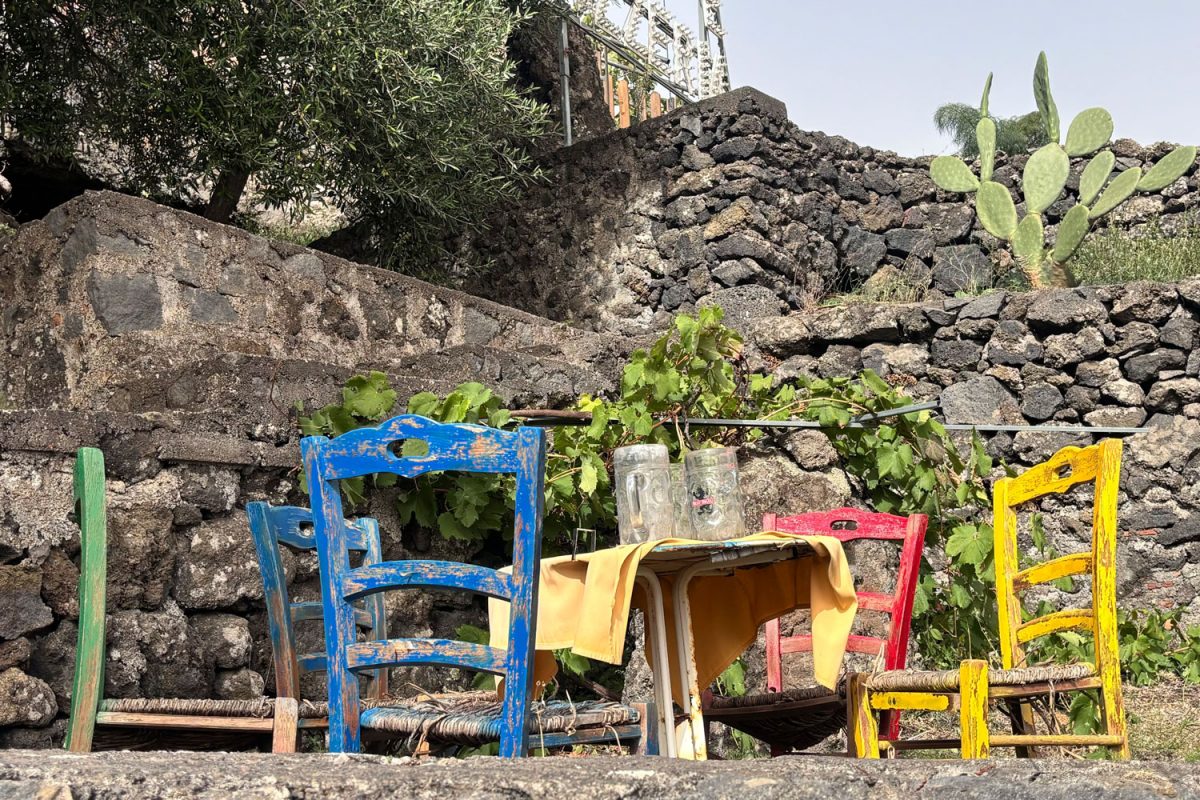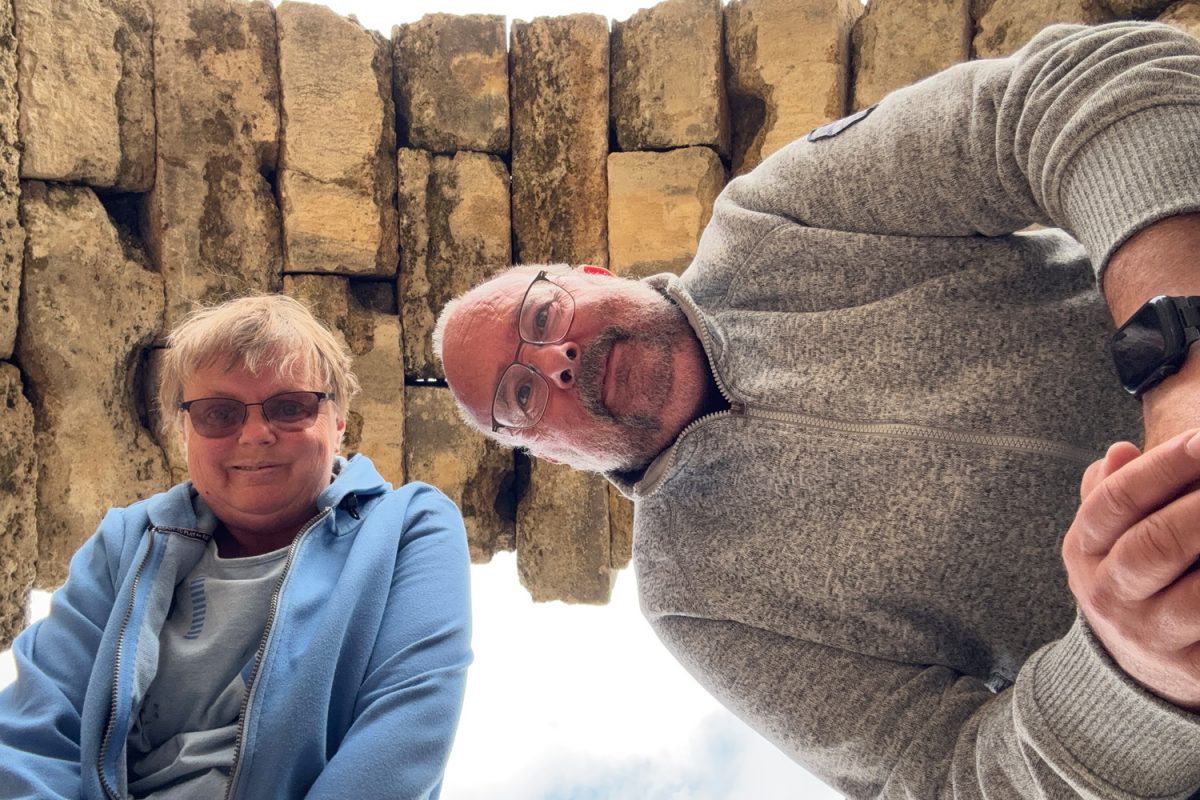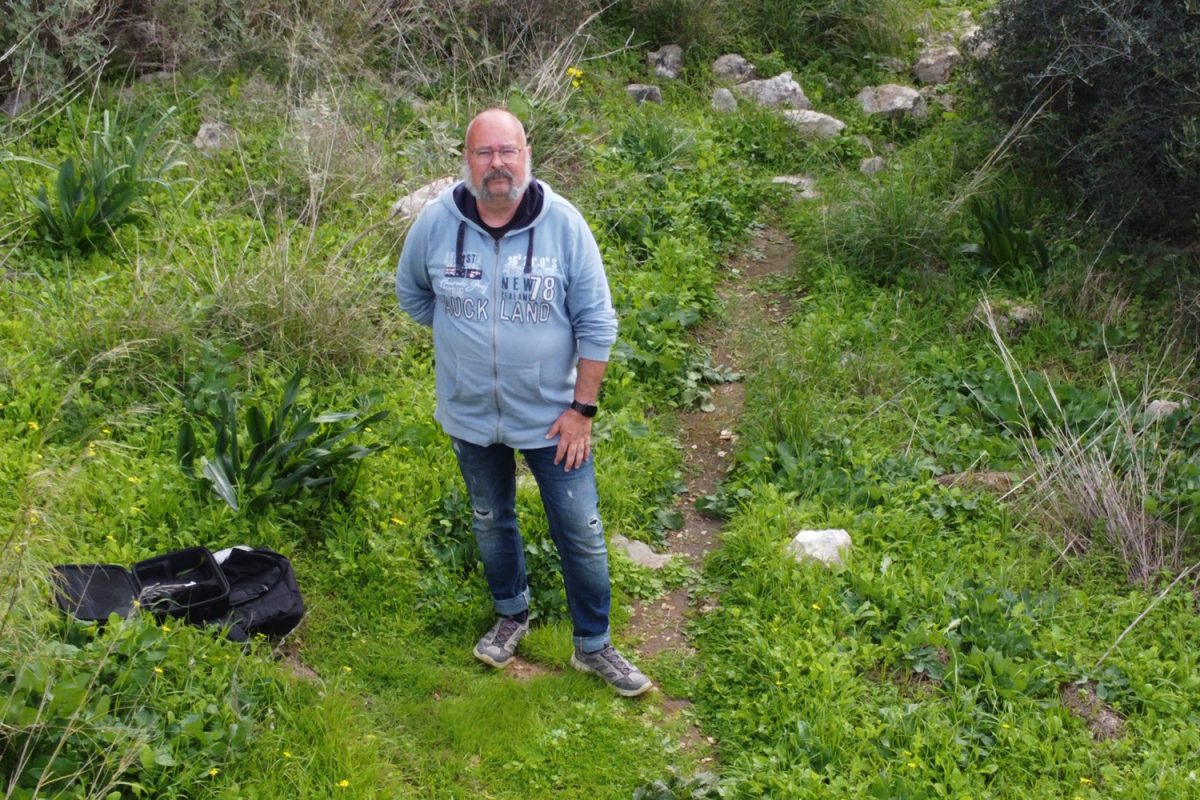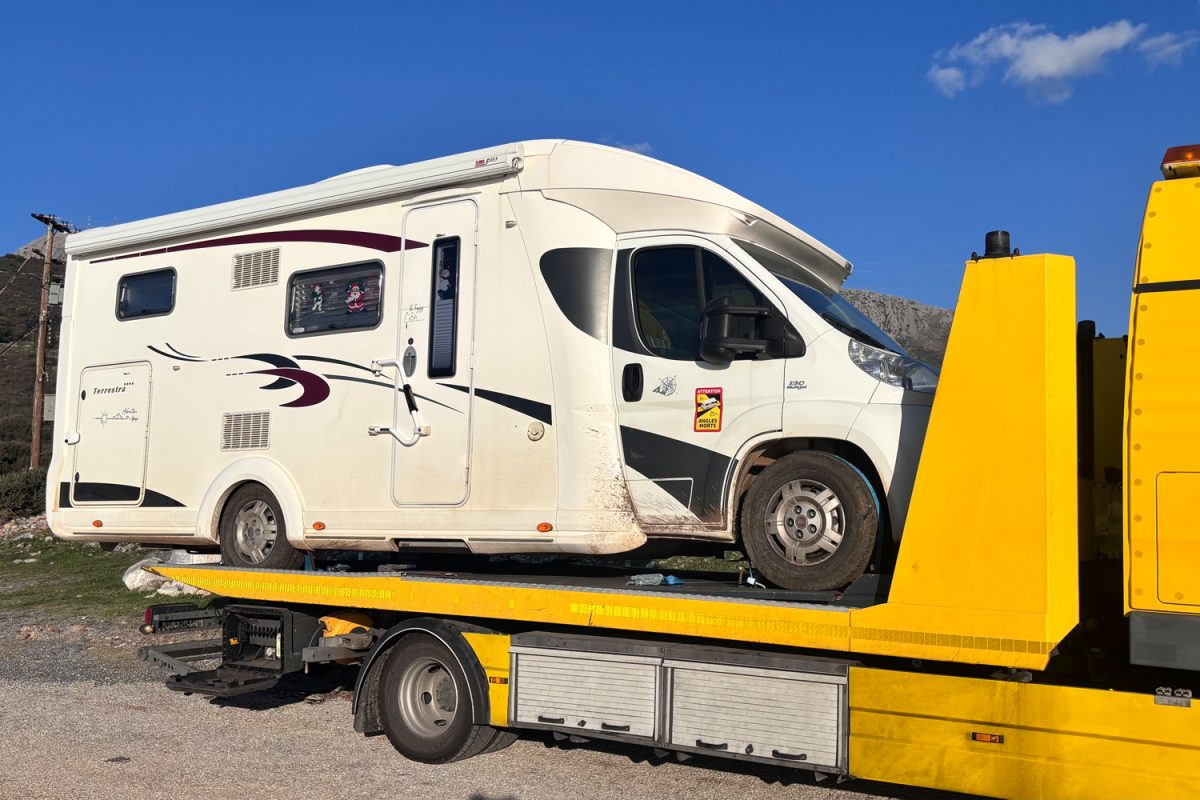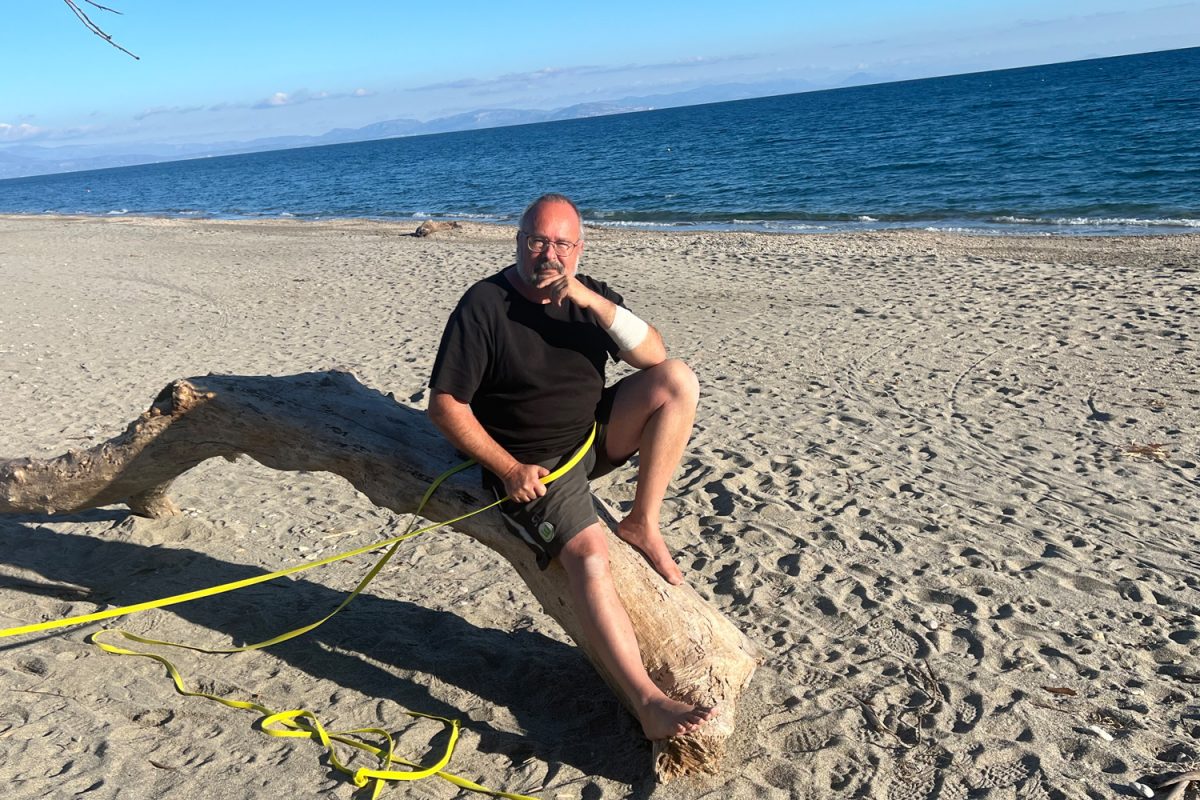Mail from … the sabbatical Christian Müller, Head of the department Budget Law and Financial Services, reports on his sabbatical abroad.
General Information
Why I decided to take a sabbatical:
After more than 30 years at the university, the double burden of working full-time at the TU and caring for relatives drained my internal battery, which was approaching the red zone. The aim of the nine month sabbatical was to recharge this battery.
This is how I organised the sabbatical:
Having toyed with the idea of a sabbatical for quite a long time, I applied for it via e-mail to the HR department around one and a half years before the start of the sabbatical. An extensive coordination process followed this, which ultimately resulted in a contract between the department and me.
These were the challenges or particularly positive experiences during the organisation:
The biggest challenge was to take into account the different interests (TU, colleagues and of course my own) in such a way that everyone involved could feel included. This was possible because everyone involved embraced this new subject matter and was prepared to put their own needs aside.
This is how I prepared for the sabbatical:
One of the ideas behind taking a sabbatical was to have no set plan—apart from the aim of spending time in Southern Europe—so that I could develop quite freely. This kept the preparations within manageable limits. All I had to do was prepare the existing motorhome in which I wanted to spend my sabbatical for a nine-month journey into the unknown.
At the university, the main task was to organise cover to maintain the regular operations in my department. Fortunately, I was able to recruit dedicated colleagues to take on leadership and deputy roles during my absence. Thanks to the outstanding commitment of my team, the tasks that arise while I’m away can be successfully managed—something for which I am extremely grateful to everyone involved
One particular challenge was clearing out my office – it’s astonishing what accumulates over 30 years…
Life abroad
I’m spending my sabbatical here:
So far, the sabbatical has taken me to Italy (Sicily, Calabria, Apulia) and Greece (Peloponnese, Athens, Euboea) as well as France. We are currently on the Iberian Peninsula (Spain, Portugal).
This is what my everyday life currently looks like:
My everyday life on sabbatical only differs from my other everyday life in that I no longer have the external control of university requirements. The demands on a family carer remain and I am required to fulfil them. However, it is clear that the caring tasks are easier to fulfil. In our case, this can be “measured” by the fact that my wife’s diabetes has improved to such an extent that after just 10 weeks on sabbatical. Of course, everyday life also has to be organised on 12 m². In addition to the sometimes difficult search for suitable pitches (usually away from campsites) and locations for supply and disposal, this includes cooking, cleaning, washing and shopping.
Once all this is done, the main priority is of course to enjoy nature and get to know the country, its people, and other travellers. It is particularly exciting here when you get to talk to others and, despite very different biographies; you always find parallels to your own life and experiences.
The biggest challenge during my sabbatical (so far):
The biggest “official” challenge was to really leave the university, with everything that goes with it, behind and to internalise that everyday at TU Braunschweig goes on without me. No less difficult was the “private” challenge of realising that you really do have “time” on sabbatical and do not have to get as much done as possible in a short space of time.
Conclusion
These skills and experience I gained abroad will help me in my job at TU Braunschweig:
I learn Italian and Spanish every day with the support of language learning apps and can certainly contribute something to the intercultural self-image of TU Braunschweig here in the future. I’ve also learnt to appreciate the relaxed Mediterranean approach to everyday problems and challenges on a daily basis. At the request of the family members who stayed at home, I regularly report on the sabbatical on a YouTube channel. Perhaps the video editing and design skills I acquired during my sabbatical will one day be needed at the TU for tutorials or similar on household topics.
What the stay abroad and the sabbatical brought me personally:
During the sabbatical, I learned to reduce material things to the essentials, because with two adults and a dog in a motorhome, you have very limited space. I therefore had to learn to manage existing resources such as food, clothing, but also water and electricity efficiently and sustainably. Since these are not always available in unlimited quantities.
Oh yes, the “battery” I mentioned at the beginning is now ready for recharging again and, above all, my “long Covid”, which has repeatedly restricted me in recent years, especially in the cold season, has been completely spared here in southern Europe.
I’m taking this home with me from here:
I will keep the distance from everyday life as a souvenir. During my stay, for example, global political issues and challenges are and were very far away. In other words, although my horizons have broadened, my cosmos has shrunk to the here and now.
I would give this tip to other employees who want to go abroad:
My tip to anyone going abroad would be: get involved with the country and its people, don’t plan, just live. It’s not the number of experiences that counts, but the intensity of them.
More information about the sabbatical
The sabbatical year is a special form of part‐time employment – regulated for employees under § 11 Abs. 2 TV-L (Collective Agreement for the Public Service) and for civil servants under § 8a of the Lower Saxony Working Hours Regulation (Nds. ArbZVO). Throughout the entire sabbatical year agreement, a reduced salary is paid. The agreement is divided into two phases: the accumulation phase and the release phase. During the accumulation phase, working hours remain unchanged while the reduced salary is provided. In the subsequent release phase, the obligation to work ceases – meaning that the accumulated working time credit from the accumulation phase is used, while the reduced salary continues to be paid.
The sabbatical year is available to all employees in permanent positions, as long as organisational reasons do not prevent it. The duration of the sabbatical year agreement is subject to individual agreement.
The decision regarding the approval of a sabbatical year is not automatic but is always made through dialogue between the employee, their line manager, and the Human Resources department. An intensive coordination process is conducted to determine whether and to what extent routine operations will be affected, and to organise any necessary cover arrangements. In doing so, the individual needs of the employee are considered alongside the requirements of the service unit.
Civil servants must meet additional criteria under § 8a Nds. ArbZVO: they must have at least 10 years of service in the public sector. Furthermore, the total approved period must span between one and a maximum of seven years, with the full release from duties lasting no less than six months and no more than twelve months. The release must be completed by the time the employee reaches the age of 59.
The application must be submitted in writing via the line manager through the proper channels to the Human Resources department, ideally at least six months prior to the start of the accumulation phase.

